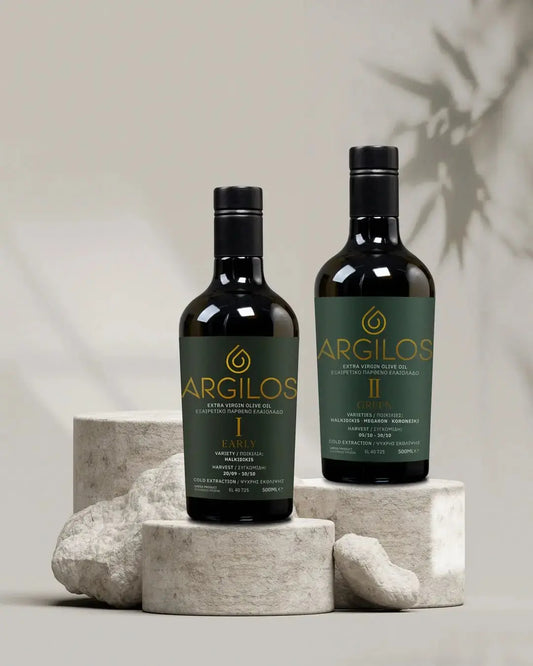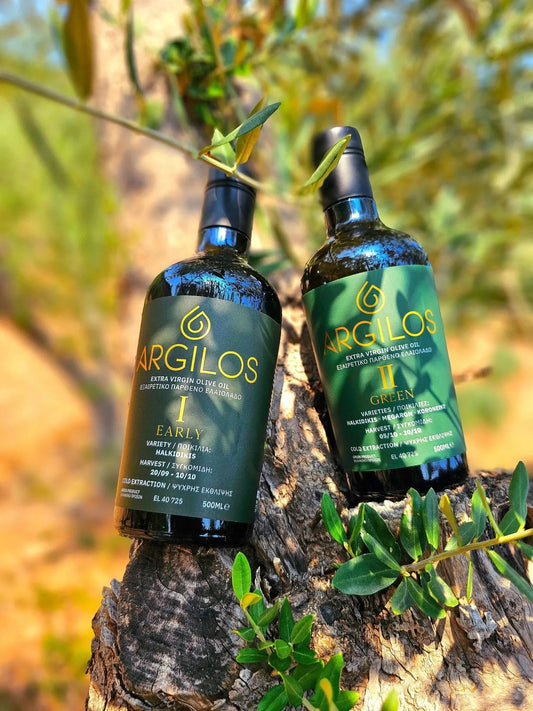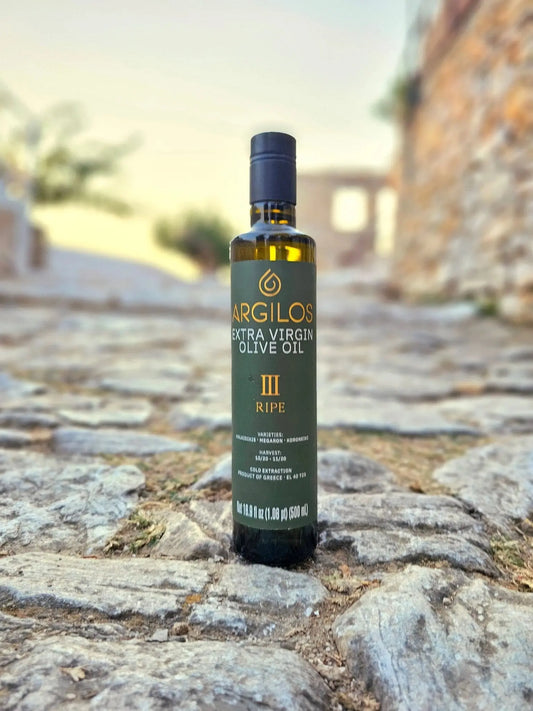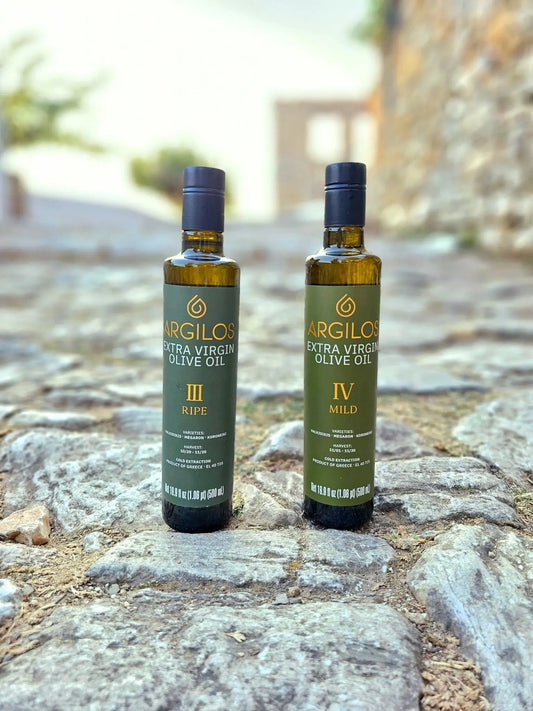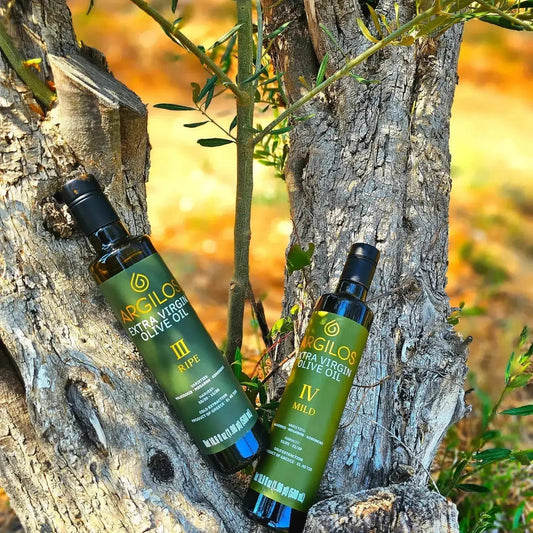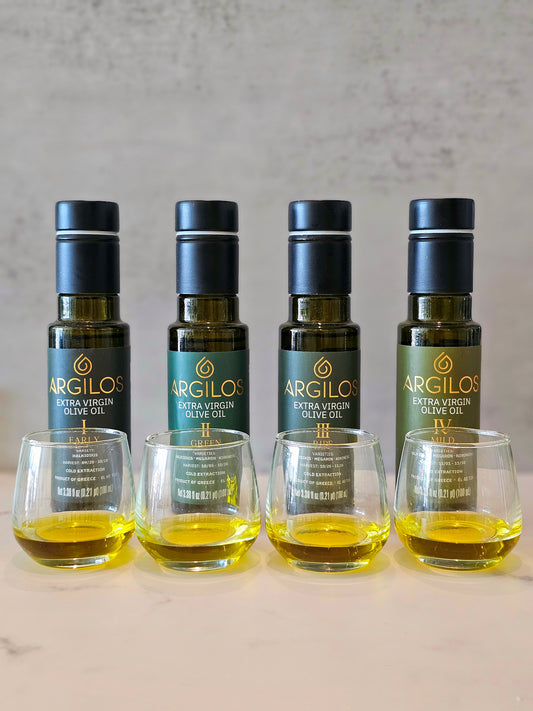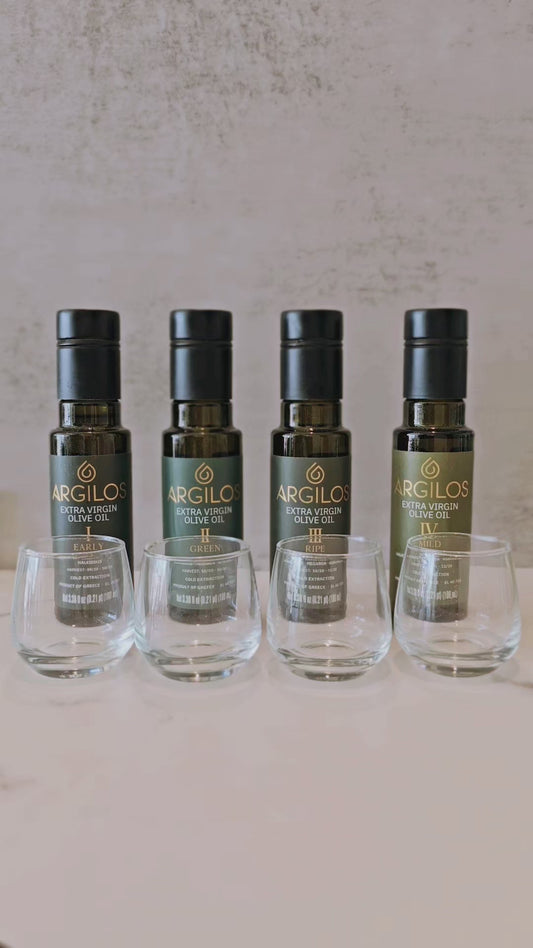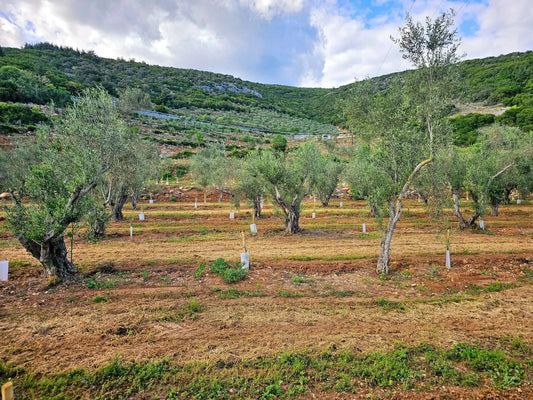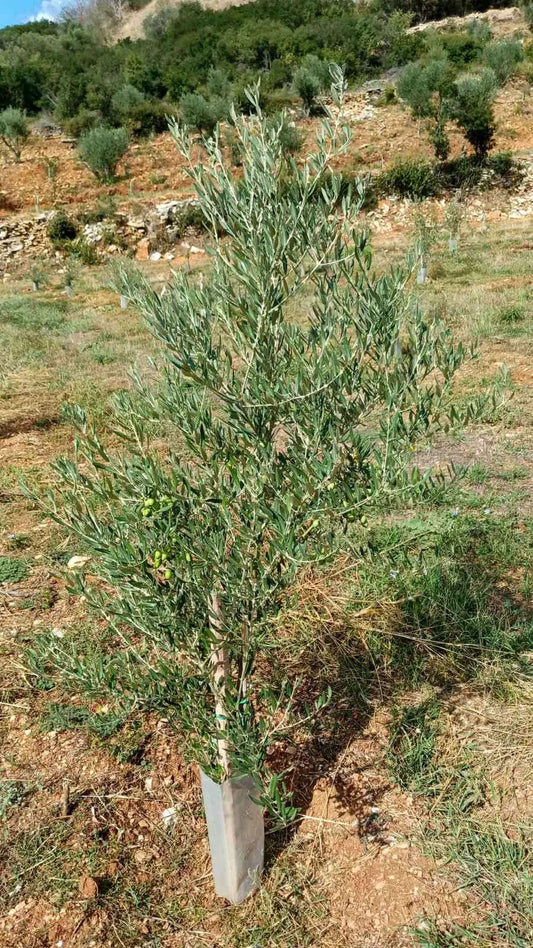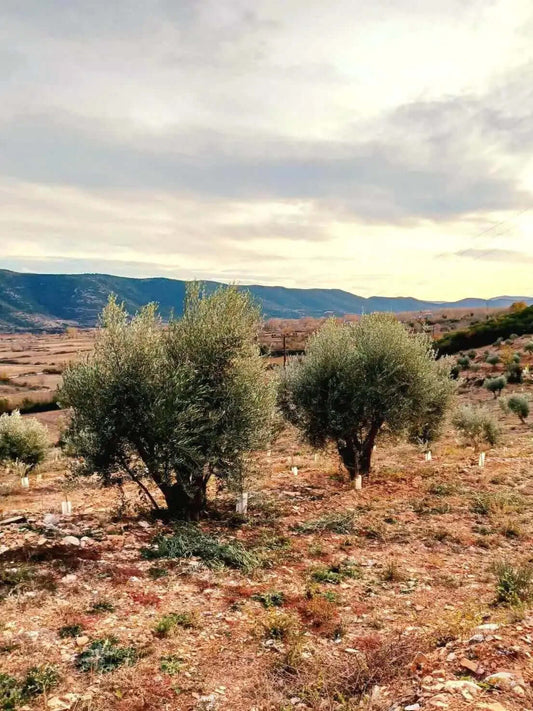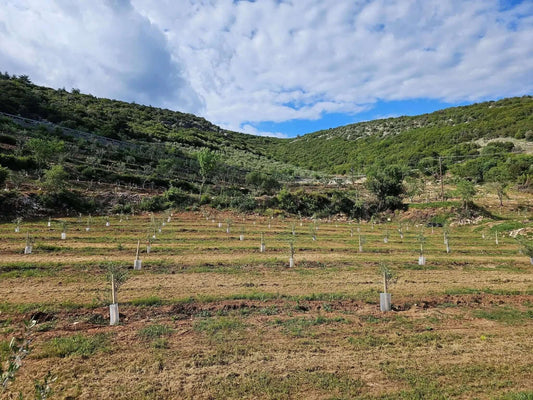From Mount Pangaion to Your Kitchen: The Journey of Sustainable EVOO
Share

The Ancient Roots of Sustainable Olive Farming
Nestled within the verdant slopes of Mount Pangaion in Kavala, Greece, lies a tradition as old as Western civilization itself—olive cultivation. For millennia, these silvery-leaved trees have thrived in the Mediterranean basin, bearing witness to the rise and fall of empires while steadfastly providing sustenance, medicine, and illumination to countless generations. The practice of sustainable olive farming isn't merely a contemporary response to modern environmental concerns; rather, it represents the continuation of ancient wisdom, preserved and perfected through centuries of careful stewardship.
Greek farmers have long understood the delicate balance between harvesting nature's bounty and protecting its perpetuity. Their agricultural methodology, passed down through generations, embodied sustainability long before the term entered our modern lexicon. Today, these time-honored techniques form the foundation of sustainable olive farming practices that prioritize ecological harmony over short-term yields.
Mount Pangaion: A Microcosm of Olive Heritage
The terraced slopes of Mount Pangaion offer a quintessential example of sustainable olive cultivation in practice. Here, olive groves have been tended by the same families for generations, creating a living archive of agricultural knowledge. The unique microclimate—characterized by mild winters, abundant sunshine, and the tempering influence of nearby seas—creates ideal conditions for olive trees to flourish without excessive intervention.
These ancient groves represent more than agricultural land; they embody a symbiotic relationship between humans and nature that has evolved over thousands of years. The traditional knowledge embedded in these farming communities serves as an invaluable blueprint for sustainable agriculture worldwide.
From Tree to Table: The Sustainable Journey of Extra Virgin Olive Oil
The creation of exceptional extra virgin olive oil (EVOO) begins with sustainable cultivation practices that honor both tradition and innovation. Sustainable olive farming isn't simply about avoiding chemical pesticides or fertilizers—though this remains fundamental—it encompasses a holistic approach to agricultural management that considers soil health, biodiversity, water conservation, and cultural preservation.
At Nostos Goods, we've embraced these principles wholeheartedly, partnering with growers who maintain Mount Pangaion's olive-growing legacy while incorporating scientifically-validated sustainable methods. Our award-winning Argilos Extra Virgin Olive Oil embodies this philosophy, offering consumers not just a culinary ingredient, but a direct connection to one of humanity's most sustainable food systems.
Our curated collection of olive products represents the culmination of sustainable farming practices that have been refined over centuries. Each bottle of our EVOO and jar of olive paste tells the story of careful cultivation, timely harvesting, and meticulous processing—all conducted with environmental stewardship as a guiding principle. By choosing products from our collection, you're not just enhancing your culinary repertoire; you're supporting agricultural methods that protect biodiversity, preserve soil health, and maintain cultural heritage for future generations.
The Science of Sustainable Harvesting
Sustainable olive harvesting involves a delicate calculus of timing, technique, and restraint. Traditional farmers understand that optimal oil quality occurs at precise moments of ripeness—a knowledge that drives our tiered approach to harvesting at different stages of maturity. Early-harvest olives yield our most intense, polyphenol-rich oils, while later harvests produce milder variants with distinctive flavor profiles.
Unlike industrial operations that prioritize quantity over quality, sustainable harvesting methods minimize tree damage and soil compaction. Hand-picking or using gentle mechanical harvesters preserves the integrity of both fruit and tree, ensuring continued productivity without degrading the ecosystem. Within hours of harvest, our olives undergo cold-pressing, maximizing nutritional value while minimizing energy consumption—a testament to sustainability's role in quality preservation.
Our flagship Argilos Extra Virgin Olive Oil exemplifies sustainable agriculture's finest expression. Available in four distinct intensity levels—from robust early-harvest to mild late-harvest varieties—each bottle contains olive oil that's been cold-pressed within hours of gathering. The single-estate sourcing ensures complete traceability, while QR code technology allows consumers to follow their oil's journey from specific groves on Mount Pangaion directly to their kitchen. These aren't merely premium culinary products; they represent a sustainable food system that nurtures both environmental and human health.
Biodiversity: The Cornerstone of Sustainable Olive Ecosystems
Sustainable olive farming recognizes that monoculture—the cultivation of a single crop in isolation—represents an ecological vulnerability. Traditional olive groves, by contrast, function as biodiverse habitats supporting countless species of plants, insects, birds, and soil microorganisms. This biological diversity provides natural pest management, improves pollination, enhances soil fertility, and creates resilience against climate fluctuations.
"The olive tree is surely the richest gift of Heaven. I can scarcely expect bread." - Thomas Jefferson
Mount Pangaion's olive groves exemplify this principle, with undergrowth management that allows native plants to flourish between trees. This vegetation provides habitat for beneficial insects that control potential olive pests, reducing or eliminating the need for chemical interventions. The resulting ecosystem doesn't just produce superior olives—it actively regenerates the landscape.
Water Wisdom in a Changing Climate
Water conservation represents perhaps the most prescient aspect of sustainable olive farming in an era of climate uncertainty. Traditional Mediterranean olive cultivation has always emphasized drought resilience, selecting varietals and cultivation methods adapted to semi-arid conditions. Modern sustainable practices build upon this foundation, incorporating precision irrigation techniques that minimize water usage while maximizing tree health.
The olive trees of Mount Pangaion have evolved in concert with local precipitation patterns, developing extensive root systems capable of accessing deep soil moisture. Sustainable farming practices enhance this natural adaptation through appropriate pruning, soil management techniques that improve water retention, and strategic supplemental irrigation only when absolutely necessary.
Regenerative Soil Practices: Building Tomorrow's Fertility
At the heart of sustainable olive farming lies a fundamental commitment to soil health. Unlike extractive agricultural models that deplete soil nutrients requiring synthetic replacements, regenerative olive cultivation actively builds soil fertility through complementary practices:
- Cover cropping with nitrogen-fixing plants that enrich soil naturally
- Composting of olive processing byproducts to create nutrient-rich soil amendments
- Minimal tillage to preserve soil structure and microbial communities
- Strategic mulching to control erosion and enhance moisture retention
These practices create a virtuous cycle where soil health improves year after year, sequestering carbon, increasing water infiltration, and supporting healthier trees that produce superior fruit. For consumers, this translates directly into olive oil with more complex flavor profiles and higher concentrations of beneficial compounds.
The Carbon Equation: Olive Groves as Climate Allies
Sustainable olive cultivation offers a powerful tool in addressing climate change. Mature olive trees function as carbon sinks, sequestering atmospheric carbon in their woody biomass for centuries. When combined with soil-building practices that increase organic matter, olive groves become net-positive climate interventions—particularly when managed without fossil-fuel-intensive inputs.
The perennial nature of olive cultivation avoids the carbon releases associated with annual tillage, while proper management of pruning waste and processing byproducts further reduces the carbon footprint. By choosing olive oil from sustainably managed groves, consumers actively participate in climate mitigation efforts.
Frequently Asked Questions About Sustainable Olive Farming
| Question | Answer |
|---|---|
| How does sustainable olive farming differ from organic certification? | While organic certification prohibits synthetic chemicals, sustainable olive farming encompasses broader ecological considerations including biodiversity, water management, soil regeneration, and cultural preservation. Many sustainable olive farms exceed organic requirements while addressing additional environmental factors. |
| Does sustainable farming affect olive oil quality? | Absolutely—typically for the better. Sustainable practices produce healthier trees with more balanced nutrition, resulting in olives with superior flavor compounds and higher polyphenol content. The emphasis on timely processing further preserves these beneficial characteristics. |
| How can consumers verify sustainability claims? | Look for traceability features like those offered by Nostos Goods, which provide QR codes linking to specific information about cultivation practices. Transparency regarding harvest dates, processing methods, and farm locations generally indicates authentic sustainability commitments. |
Bringing Mount Pangaion's Sustainable Legacy to Your Kitchen
The journey from Mount Pangaion's ancient olive groves to your kitchen represents more than a supply chain—it embodies a cultural bridge spanning millennia. When you drizzle Argilos Extra Virgin Olive Oil over a summer salad or spread our artisanal olive paste on crusty bread, you participate in an unbroken tradition of sustainable nourishment.
For today's eco-conscious consumers, particularly urban millennials and Gen Z individuals seeking meaningful connections to their food sources, this authentic relationship offers something invaluable: culinary products aligned with environmental values without compromising on quality or aesthetic appeal. The silvery-green leaves of Mount Pangaion's olive trees catch the Grecian sunlight just as they have for centuries, continuing their quiet work of sustainable production for generations yet to come.
By choosing products born of sustainable olive farming practices, you're not merely purchasing premium ingredients—you're casting a vote for agricultural systems that regenerate rather than deplete, that preserve cultural heritage alongside biodiversity, and that offer a viable model for addressing our most pressing environmental challenges. From Mount Pangaion to your kitchen, this journey represents sustainability in its most delicious form.

